
Spring 2023 – Volume 63, Issue 1
Editor: Erinn C. Cameron, USA/Scotland
Editorial Team: Polli Hagenaars, Netherlands; Ada Sinacore, Canada; Merry Bullock, USA/Estonia, & Patrick A. Robinson, USA
Message from the President
- President Andy Simon
- Past President Josephine Tan
ICP News and Activities
- ICP 2022 Annual Conference Report
- ICP 2022 Award Winners
- Webinars
- Interest Groups
Behind the Scenes – from the Secretariat
Member Spotlight
- An Interview with Claire Adams
Student News & Highlights
- Students at ICP 2022 Virtual Conference
- Student News & Announcements
Member News, Announcements, and Comments
- Call for Abstracts: ICOPE 2023 October 23-28, Mexicali, Mexico
- Call for Papers: Spexial topic on Vulnerability and Resilience in Small Island Developing States
- Call for Papers: Environmental Justice and Psychology: Alternative Ideas on Environmental Issues
- Call for Book Chapters: Global Feminist Perspectives on Climate Change
ICP at the United Nations
- Report from ICP Represenatives at the UN: Call for Action from the Committee on Migration
Art & Poetry
- Climate Moment or Climate Time? By Elaine Henry Olayoe
Upcoming News
Note from the Editor

I am privileged to serve as ICP’s president. The association is in a very healthy phase of development, and I welcome the opportunity to provide leadership for the next two years. I have been engaged with ICP’s leadership since becoming Chair of the Membership Committee in 2016. The following year I was elected to the board and was instrumental in creating ICP’s webinar program in 2018, serving as chair of the Webinar Committee since its inception. I was also able to contribute to the creation of our new five-year strategic plan. As a social-organizational psychologist on faculty at Seton Hall University in New Jersey, USA, I was pleased to bring my knowledge of organizations and systems to the creation of the plan. The plan will serve as a guide for my presidency.
One of the great pleasures and learning experiences for me has come from supporting and collaborating with President Josephine Tan for the past few years. It is my intention to further her efforts and build upon her success. Dr. Tan’s leadership has been invaluable for the association, as it was under her guidance that we shifted to an online conference format during the pandemic, grew our membership, expanded our webinar program, created vibrant interest groups, and can now enact a new strategic plan. I thank Dr. Tan for her tireless efforts. My goal as president is to follow her lead by continuing to attract a broad, diverse, and collaborative membership that will enact ICP’s mission of serving “human rights, dignity and justice.” I am confident that ICP will only increase its presence globally in the coming years and continue to make a contribution to the international community.
Andrew Simon, ICP President 2023-2025

As I write this message, 2022 is ending. The year seems to have whizzed by because the ICP has been very active and making progress in several areas. So, what have we been up to in 2022? Let’s take a look at the highlights:
- Development and ratification by the Board and membership of the ICP Strategic Plan 2022-2026 to further detail the organizational mission, value statements, and objectives; to enhance organizational stability and sustainability; and succession planning; and to increase student representation and involvement.
- Revisions of the ICP By-Laws and subsequent ratification by the Board and membership to align the By-Laws with the Strategic Plan.
- Elections for the Office of the President-Elect and 3 Directors-at-Large with terms to begin in 2023. Candidates elected to office are Polli Hagenaars (The Netherlands) for the President-Elect position, Lucy Mukuria (Kenya), Élison Santos (Brazil), and Nancy Sidun (USA) for the Directors-at-Large roles.
- Establishment of the new International Human Rights Award to recognize individual psychologists or groups composed primarily of psychologists for their work on human rights and psychology. This brings the number of our major awards to 5
- Establishment of 3 new interest groups by members: the Decolonizing Psychology/Decolonizing Society Interest Group, the Latin America and Caribbean (LAMC) Interest Group, and the Health Psychology Interest Group. These are in addition to the existing Health and Wellness from a Human Rights and Cross-cultural Perspective Interest Group.
- Continued collaboration on the Global Network of Psychologists for Human Rights (GNPHR; https://humanrightspsychology.org) which is a useful and free resource for psychological activities relating to human rights
- Eleven (11) monthly webinars under the Webinar Series, half of which were co-hosted with the GNPHR
- Launching of the very successful “Discover ICP” program, which offers a 1-year free trial membership. Partly because of this program, the membership has increased and is becoming more diverse as colleagues from more countries join us.
- Launching of the ICP Monthly News and Updates to enable regular and timely communications with the membership on events and matters of interest
- Passing the torch: Erinn Cameron (USA) became the new ICP Newsletter Editor, following in the footsteps of the former Editor, Ada Sinacore (Canada), who remains on the newsletter editorial team
- Planning, organization, and hosting of the hybrid ICP Regional Meeting in Tokyo (July 9-10) by Dr. Machiko Fukuhara and Dr. Naoki Asazuma. It was well-attended by colleagues from Japan and other parts of the world.
- Planning, organization, and hosting of the virtual annual ICP conference (December 9-11), which welcomed participants from countries across the globe.
- Strengthening our link to the United Nations through ICP representatives at the New York and Vienna UN sites. We supported several UN statements and are members of the Council of NGOs at the United Nations (CONGO) and the Psychology Coalition at the United Nations (PCUN)
- Continued participation in global networks and alliances such as the Global Psychology Alliance (GPA), the World Federation for Mental Health, and the World Associations of NGOs (WANGO).
The ICP would not have been able to accomplish the above or maintain its status quo, without a Board that works well together, a very effective Secretary-General in the person of Merry Bullock, and several individuals who have shown great initiative and commitment in their respective tasks to ensure high calibre outcomes. Being a member-driven organization, the ICP moves ever closer to realizing its full potential when members share their interests, expertise, creativity, and talents to achieve common goals.
My term as the President ended on 31 December 2022. I started off as the President-Elect in the summer of 2019 when the ICP held its in-person annual conference in Cadiz, Spain, and became the President in 2020. The year 2019 is the last time when I remember the world as a simpler place where we could travel everywhere with no fear. When COVID-19 came along in early 2020, many of the human problems that we read about in books and researched in quite academic ways suddenly became very real and amplified when the coronavirus and its unprecedented effect on societies touched everyone around the world. We recognized the need to work together as a global family if humanity is to survive the many major challenges that face all of us and that affect the marginalized and vulnerable populations to a greater degree.
It was during the COVID pandemic that the ICP strived to further define our unique identity and our niche in the global psychology family so that we can best help to address humanity’s issues without being redundant with other psychology organizations. This catalyzed our strategic planning for 2022-2026. We recognize the importance of global diversity and inclusiveness in what we do and that our members are our best assets. We are continually striving to communicate and engage with colleagues from different parts of the world, hoping that they will in time, become more involved with the organization. We hope that we are moving in the right direction through our Monthly News and Updates and by holding our annual conferences virtually so that we can have international participation from a distance. I have been asked whether the ICP will continue to hold its conferences via virtual platforms or return to its traditional in-person format. My answer is, “I don’t know.” There are pros and cons to each, and the Board will be looking into this question for the 2023 and future annual conferences.
Psychology is changing rapidly. Even as the discipline extends its influence internationally, there is recognition that it is a Western discipline, and decolonizing psychology efforts are being undertaken in various geographical regions. Increasing focus is being placed on issues relating to climate change, global health and disparities, migration and displacement, leadership, gender, and many more. All these issues are interconnected and require a coordinated and interactive effort among all psychology subfields if we are to use psychological science to address global issues. However, it cannot be a one solution for all, and psychologists have to recognize the limits of their knowledge and their ability to lead in contexts and cultures that are not familiar to them. This is where they have to step aside, listen, and learn, and offer assistance if invited and needed.
When I think of the issues that face humanity and what psychology can do, I am faced with the question of how we can balance diversity and inclusiveness without driving wedges between people in the former and imposing a singular mindset on everyone in the latter. Perhaps the answer might lie in tolerance, understanding, flexibility, and adaptability. Diverse situations call for diverse solutions; if we can accept diverse thoughts, opinions, belief systems, behaviours, and customs, then we might have a good chance of coming up with appropriate solutions for problems in diverse situations.
As I leave the presidency, I want to say that it has been a true honor to serve. I want to thank Secretary-General Merry Bullock, the extended Board, and everyone who has helped the ICP move forward in its journey as a human rights organization for psychologists and allied professionals. I have come to know many of you and developed great relationships as a result. The ICP has broadened my view of the world and its challenges and led me to new thinking and perspectives. It has made me a better psychologist, and I’m sure it will, too, to anyone who decides to step forward and help out. Andrew Simon assumed the Office of the President on 01 January 2023. The ICP will be in his very capable hands and, together with the Board and the membership, will continue to achieve its objectives.
Happy 2023 to everyone – may the year be one of peace, safety, and good health for you and your loved ones.
Josephine Tan, ICP Past-President
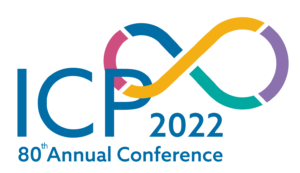 ICP 2022 Annual Conference Report
ICP 2022 Annual Conference Report
The ICP annual conference was held on December 9-11, 2022, via zoom. Its theme was Human Rights, Dignity, & Justice: Strategies for Sustainability. The events were scheduled during different hours of the day as well as evening and night to maximize access by registrants living in different international time zones. We tried a different structure for this conference where there were no plenary or keynote speakers but had grouped discussions.
There were 3 Expert Panels featuring invited speakers who covered these topics:
- Decolonization with speakers Sunil Bhatia (USA), Rolando Vazquez Melken (The Netherlands), and Neziswa Titi (South Africa), chaired by Polli Hagenaars (The Netherlands) and Merry Bullock (USA/Estonia)
- Climate Justice with speakers Gonzalo Bacigalupe (USA) and James Dunk (Australia), chaired by Erinn Cameron (USA/Scotland)
- Health & Human Rights with speakers Urmi Biswas (India), Vera Araujo-Soares (The Netherlands), and Melissa Begg (USA), chaired by Elaine Congress (USA) and Swati Bajpai (India)
There were also four Roundtable Discussions assembled from submissions that were received on topics related to Displaced Peoples (moderator: Sharon Coen, United Kingdom), Decolonization/Racism (moderator: Ada Sinacore, Canada), Health & Human Rights (moderator: Carmen Poulin, Canada), and Well-Being (moderator: Craig Shealy, USA).
These events with multiple speakers were well-attended and provided interesting and valuable insight into the work and perspectives of our colleagues from different parts of the world. This was evident from the active engagement from the audience during the question-and-answer period.
We were delighted to have our 2021 award winners deliver their individual lectures at the conference: Anila Kamal from Pakistan (Denmark-Gunvald Award), Harold Takooshian from the USA (Frances Mullen Award), and Bisma Ejaz from Pakistan (Sukemune-Bain Award). The 2022 award winners were announced at the Awards Ceremony and will be invited to speak at our next annual ICP conference.
We also had three interactive poster sessions where each presenter gave a 90-second elevator talk and then was assigned to a breakout room where the audience could meet with them to ask about their work. This was a great format because it allowed direct interaction between the presenters and the audience. A first prize and two second prizes were given out for the best student posters.
Our Meet & Greet/Networking sessions provided great opportunities for the conference attendees to get together informally and socialize. We also held two Student Social Hour events where students could meet other students from different countries.
The conference attendees responded very warmly and positively to the collection of Hello Greeting videos that were submitted by the conference attendees for the Opening Ceremony. It was inspiring to see the diversity and hear different languages being spoken. For the Human Rights Observation, readings of the Universal Declaration of Human Rights by individuals from around the world were featured. The Global Network of Psychologists for Human Rights also showed a video of its members sharing their thoughts on what human rights meant to them. It was clear that regardless of who the members were or where they lived, they share a common vision of peace, freedom, respect, and equity.
We held the business meeting, which provided an overview of the ICP activities, followed by the town hall meeting in which we sought feedback from members about increasing member engagement and involvement in the ICP, and about future annual conferences. The suggestions received at the town hall meeting is being collated and will be used to inform ICP decision-making.
We are delighted to report that there were 127 people from 30 countries who registered for the conference. This is very encouraging, given that one of our conference goals was to make it accessible on a global scale. We want to thank all those who shared their work and knowledge at the conference and who chaired or moderated events. Thanks are also extended to everyone who attended.
One question that we have been receiving is whether the next annual conference will remain in a virtual format or revert back to its traditional in-person meeting. The answer is that no decision has been made. We want to keep the conferences as accessible and affordable as possible to colleagues around the world. In that regard, it would be better to keep it virtual. On the other hand, there are calls for in-person conferencing because people are missing real-life contact; however, this traditional form of the meeting can be prohibitive for many who might not be able to travel for various reasons. We will refer the matter to the Board for discussion and a decision.
Planning and organizing a conference is a very time and labour-intensive endeavour. The ICP2022 conference would not have been possible without the work of a dedicated committee. Acknowledgments and grateful thanks are extended to the following ICP2022 committee members (in alphabetical order): Irma Barron, Merry Bullock, Erinn Cameron, Mary Beth Kenkel, Amina Muazzam, Chris Mulchay, Natalie Porter, and Josephine Tan (Chair). If any ICP member is interested in lending a helping hand in future ICP conferences in some small capacity or to join the conference committee, we would be delighted to hear from you. Please email icpincinfo@gmail.com with your inquiry or expression of interest.
~ Josephine Tan, Chair of the ICP2022 Conference Committee
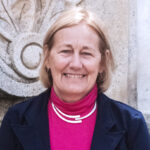




ICP 2022 Award Winners
Fukuhara Award for International Research and Service
Dr. Judith Gibbons, Emerita St. Louis University, USA/Guatemala
Denmark-Gunvald Award for Feminist Research and Service
Dr. J. Anitha Menon, Visiting Professor at the American University of Sharjah, United Arab Emirates
Seisoh Sukemune/Bruce Bain Award for Encouragement of Early Career Research
Omid Vakili Ebrahimi, University of Oslo, Norway
Frances Mullen Award for Distinguished Contributions to International Psychology
Dr. Scott Plous, Wesleyan University, USA
Human Rights Award
Dr. Ufra Mir, Kashmir, Peace Psychologist & Founder of the International Center for Peace Psychology
Recognize colleagues doing international work by nominating them for an ICP Award!
ICP welcomes nominations and self-nominations for awards that honor international research and service! Award recipients are honored at the ICP Annual Meeting and invited to give a Webinar on their work. Detailed information about each award and the nomination process can be found here: https://icpweb.org/awards/
Nominations deadline: 30 June 2023
Webinars
In 2022 ICP offered a series of webinars, thanks to our Special Interest Groups and organizational collaboration with the Global Network of Psychologists for Human Rights. Presenters covered a range of issues touching on human rights, including women’s rights, refugees, ethics, children, and the evolution of human rights since their inception. Additional webinars have been on students’ views of social change, health psychology, climate change and modern slavery, the psychology of women, and the legacy of Ignacio Martín-Baró. The year-long series was consistent with ICP’s strategic goal of serving as a hub for timely information and the active exchange of ideas. The webinars featured many hosts and moderators – with lively discussions with audiences. In addition, ICP now offers participation certificates for Webinar participants for the hour-long sessions.
As ICP continues to take pride in serving as a forum for experimentation, we encourage all members to suggest new ideas, formats, and topics for the 2023 ICP webinar series. We hope to incorporate the talent and experience of our members when it comes to hosting or presenting webinars in 2023.
Please be sure to let us know if you would like to join this year’s Webinar Committee (indicate that here). Our goal is to make this year as rich and valuable as the last. As we move toward scheduling additional events, be sure to register for webinars already on our calendar (https://icpweb.org/icp-webinars/).
Upcoming Webinars
April 27, 2023 – 10 am EDT / 4:00 pm CEST, 15;00 UTC – Human Rights and the Professional Psychology Identity- sign up here to attend
May 18, 2023 – 10 am EDT / 4:00 pm CEST / 15:00 UTC – Confidence Food: Leveraging Food to Reduce Eco-Anxiety and Increase Health and Well-Being – sign up here to attend
Interest Groups
ICP interest groups address diverse human rights topics of international interest. More information about these groups can be found https://icpweb.org/interest-groups/
Current interest groups:
- Decolonizing Psychology, chairs: Polli Hagenaars (Netherlands) & Lucy Mukuria (Kenya)
- Latin America & Caribbean Psychology, chair: Naomi Koerner (Canada)
- Health Psychology & Human Rights, chairs: Swati Bajpai (India), Elaine Congress (USA), & Amina Muazzam (Pakistan)
- Scientific Approaches to Human Wellness, chairs: Machiko Fukuhara (Japan) & Naoki Asazuma (Japan)
If you are interested in starting an interest group, please contact the interest group coordinator, Polli Hagenaars
The ICP Secretariat has been active in the first quarter of 2023. Routine activities include:
- Securing Grounds Passes for ICP’s United Nations Representstives – ICP sponsors psychologists to represent ICP at the United Nations in New York and Vienna. These representatives participate in the activities of UN-NGO Comitttees that provide educational and advocacy input on topics covered by UN commissions, participate in the Psychology Coalition at the UN (PCUN) which sponsors the annual Psychology Day and promotes advocacy activities with UN Missions, and help keep ICP informed about UN actions and statements.
- Filing taxes and reports to keep ICP active as a non-profit organization, registered in the United States
- Sending the monthly News and Updates (you can see past editions here)
- Keeping the website up to date
In addition special activities have included:
- Providing input to global partners (such as input the the International Union of Psycohlogical Science (IUPsyS) Disaster Response programme; support to Ukraine;
- Updating the web to add a MEMBERS ONLY section where you can find Board Meeting minutes, Membership Updates, and more!
- Participating in the Global Psychology Alliance subgroup on Climate Change – current activities include developing fact and advocacy sheet templates that each country’s national association can adapt to raise awareness about their local climate change challenges and psychologically informed actions to meet these challenges (ranging from coping with climate anxiety to advocating for governmental policy, to promoting citizen action)

Claire Adams, Ph.D.
Post-Doctoral Fellow at McGill University in Montreal, Canada
Interviewed by Polli Hagenaars
In the series of Giving a Voice to ICP Students and Early Career Members, we introduce Claire Adams. Claire just started a postdoctoral fellowship at McGill University in Montreal, Canada. She recently completed her Ph.D. in Psychology at Edith Cowan University in Perth, Western Australia. She is a registered psychologist, although she primarily worked as a Ph.D. student in a research role. In early July, she moved from Australia to Canada to commence this position.
Claire’s postdoctoral research focuses on patient engagement and non-pharmacological interventions to improve coping and quality of life in people with Scleroderma, a rare autoimmune disease. A large part of her work will focus on developing an effective framework for patient engagement in Scleroderma and other diseases in a multidisciplinary team: the Scleroderma Patient-centred Intervention Network (SPIN).
‘Throughout my studies and research path so far, I have always worked closely with patients to ensure their opinions, needs, and preferences are met when designing interventions,” said Claire. “I believe patients have a right to be involved in research about their health, and effective patient engagement and knowledge translation can empower patients to make informed decisions about their health care. I hope to combine my interest in health behaviour change, mental health promotion, and patient engagement for this new position.” What motivated Claire to study psychology is her interest in people, in their thoughts, behavior, and interactions. “I wanted to focus more on health behaviour, and help people to lead productive, mentally healthy lives,” she noted.
Claire became a member of the ICP after the 2021 virtual conference. Perth is, according to Claire, a rather isolated place on earth. The focus of Claire’s work so far has been more on the individual level, not so diverse in gender, age, and education, as she hopes to study in Canada. Her interest goes to a more global approach, to equal rights, to more cohesion in society, and to democratization of health interventions.
For her future role in the ICP, the last words go to Claire herself: ‘The ICP is a great avenue to be able to promote patients’ rights in health care and to be able to advocate for human rights and unity on a more global level. I think the ICP has an important role to play in creating better awareness of global justice issues and promoting the role psychologists can play in addressing such issues. I am a fairly new member of the ICP, but I look forward to contributing to activities that help promote human rights and peace and to employ my knowledge in psychology to do this on a global scale.”
ICP 2022 Conference: Student Poster Award Winners
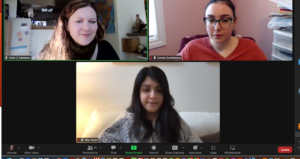
First Place: Donna Dumitrescu, University of Regina, Canada
Title: Middle-Aged Resiliency and Resistance Study: Ageism & Age-Inclusivity
Second Place: Sadia Sohail & Fatima Jinnah, Women University, Pakistan
Title: Gender Differences in Suicidal Ideation and Non-Suicidal Self Injury among Young Adults in COVID-19
Second Place: Rita Yazici, Lakehead University, Canada
Title: Issues in an Interview Study with Syrian Refugees in Canada
ICP Student News
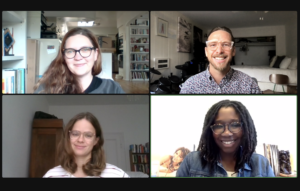
We are pleased to announce that recent updates to the ICP Bylaws include extending full voting rights to all student members. Further, the position of student representative to the board will now be an elected position. In the past, this position has been via presidential appointment. If you are interested in running for this position, please reach out to the current student representative, Erinn Cameron ecameron@email.fielding.edu for more information.
Additionally, yearly student membership fees have been lowered, and the Discover ICP membership program has been extended for 2023. Discover ICP allows for a year of free membership for new members. Information about membership and fees can be found here: https://icpweb.org/membership/icp-membership/
Report from ICP Representatives at the UN: Call for Action from the Committee on Migration
Eva Sandis
Eva Sandis is one of ICP’s representatives at the United Nations. These representatives participate in UN NGO Committees, and join with other psychology organizations in the Psychology Coalition at the United Nations (PCUN).
A CALL TO STOP STEALING CHILDREN’S LIVES
The NGO Committee on Migration calls on world leaders to accelerate their efforts to end child labor by 2025, as the pace of reducing child labor has slowed worldwide. In 2020, 160 million children were engaged in child labor or 1 in 10 children worldwide. The COVID-19 pandemic, natural disasters, and conflicts, including the invasion of Ukraine, have dramatically exacerbated global inequalities in the labor market and gaps between those who have and those who are left behind. Addressing child labor is essential to attain social justice and protecting children’s lives worldwide.
Child labor thrives where families are poor and excluded, women and girls are discriminated against, institutions are weak or corrupted, and children have no access to fundamental services, such as physical and mental health, nutrition, child protection, and social protection, education, including Early Childhood Education and Care, and where child labor is considered as a solution for development. Child labor is not only a rights issue, but it is also an economic issue; putting children to work delays economic development, and without economic development, more children find themselves put to work. This creates a self-perpetuating cycle of poverty.
Particularly at risk are child migrants, vulnerable to exploitation, discrimination, and violence. Migrant and refugee children in mixed migration situations are amongst the most vulnerable because of the dangers they face crossing borders, being separated from family members, being exposed to trafficking, exploitation, and harm, in addition to having to cope in a foreign country with issues of language, documentation, access to justice, etc.
To stop stealing children’s lives, it is essential to prevent the psycho-social burdens that affect children’s development. It is imperative to increase safe, orderly, and regular channels of migration and admission for refugees and other forced migrants. When families migrate together and are allowed to stay together in the immigration/asylum process, the risk for children is reduced.
International human and labor rights normative standards set legal boundaries for child labor and provide grounds for national and international actions to end it. But we know that most governments have failed to develop effective policy responses to assist and protect child laborers.
Without accelerated action, the international community’s commitment to eradicating child labor by 2025 is practically out of reach, limiting progress on many other SDGs.
The time to act is now, with special attention to prevention-based approaches.
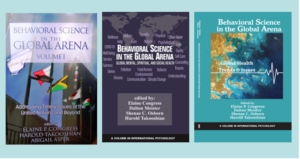 International Psychology Textbooks from PCUN
International Psychology Textbooks from PCUN
Harold Takooshian & Elaine P. Congress
“How can professors internationalize their psychology courses?” The Psychology Coalition at the United Nations (PCUN) now offers a series of three diverse new volumes, featuring over 80 chapter authors from a dozen nations—including many ICP members among them. More details appear at the series website: www.infoagepub.com/series/International-Psychology
Member Announcements
Call for Abstracts: ICOPE 2023
The deadline for abstracts is April 30th, 2023. ICOPE is the premier international conference for Psychology educators in Universities, Colleges, and High Schools to present their research. The 2023 ICOPE Conference will be held in Mexicali, Mexico, from October 27-28, 2023, at Universidad Autonoma De Baja California (UABC). The conference theme is: “Tuning Psychology Education to Serve Humanity and Habitat.” For queries regarding submissions, please contact Frances Martin Frances.Martin@newcastle.edu.au. For more information: http://www.psychliteracy.com/icope-inc
Call for Papers: Special topic on vulnerability and resilience in Small Island Developing States
Frontiers in Psychiatry (multidisciplinary, open access) is calling for contributions to a Frontiers Research Topic. This Research Topic invites empirical research, commentary, and systematic reviews concerning challenges to mental health and health systems in SIDS, as well as interventions (broadly defined) that promote resilience. We are particularly interested in papers that examine interconnections between mental health and vulnerable physical, social, and economic environments. Letter of interest deadline May 20, 2023. Please see https://www.frontiersin.org/research-topics/53383/vulnerability-and-resilience-in-small-island-developing-states#overview for details.
Call for Papers: Environmental Justice and Psychology: Alternative Ideas on Environmental Issues
A Topical Issue of International Perspectives in Psychology: Research, Practice, Consultation
Guest Editors: Erinn Cameron, Luca Tateo, and Gonzalo BacigalupeSubmit 1-page, single-spaced descriptions of the proposed manuscript to the guest editors by August 31, 2023. Selected authors will be contacted by October 15, 2023, and invited to develop their manuscripts. Completed manuscripts are due April 15, 2024. Submit proposals via email as Word attachments to: ecameron@email.fielding.edu, lucatateo@gmail.com, and gonzalo.bacigalupe@umb.edu. More information can be found here: IPP Call for Papers
Call for Book Chapters: Global Feminist Perspectives on Climate Change
This volume will feature the work of women climate scholars from across the globe from intersecting disciplines. The idea is to feature the work of scientists who identify as women, and thus the first author must identify as such. If this topic and vision align with your work, you are invited to contribute a chapter to this edited volume. Diverse representations of work are welcome. Contributions do not need to be original research but may be an overview of your body of work or approach to research in this area. For more information, please contact: Erinn Cameron ecameron@email.fielding.edu
Member Publications
CANREC Bulletin (annual publication of the CARIBBEAN NETWORK OF RESEARCH ETHICS COMMITTEES) is online with great articles about research collaboration, research ethics, and creating undergraduate research experiences online. Forwarded by ICP member and CANREC Bulletin Editor, Mike Campbell (Barbados) https://www.carpha.org/Portals/0/Publications/CANREC_BulletinVol4No1.pdf
Member Awards & Honors
- Nancy Marie Sidun, PsyD, ABPP, ATR was awarded The Division of Women’s Issues New York State Association The Margaret Floy Washburn Award, presented in recognition of her extensive and exceptional work through her lectures, writing, and research advocating for women’s issues, her outstanding leadership, exceptional service to psychology, and dedication to women’s issues.
- Erinn C. Cameron was awarded a Feminist Africa research and publishing award for 2022-2025 for her work investigating the feminist struggles regarding climate change and violence against women in Sub-Saharan Africa. https://feministafrica.net/
Climate Moment or Climate Time?
By Elaine Henry Olayoe
Written for ICP Human Rights Observation December 11, 2022
Climate moment or Climate time?
Climate chaos or Climate crisis?
Climate injustice or Climate opportunity?
Climate fears or Climate jeers?
Humankind’s moment or humankind’s time?
Humankind’s chaos or humankind’s crisis?
Humankind’s injustice or humankind’s opportunity?
Humankind’s fears or humankind’s jeers?
What are humans making of a most precious gift
The gift of life,
The gift of living on this magnificent earth?
How are we acting, behaving, defining, what it is to be human?
How are we re-creating, redesigning, making earth into a humane or inhumane space?
How are we appropriating, using, earth’s bounteous offerings?
Protecting them? Appreciative, grateful, excited and responsible stewards?
Celebrating, sharing abundance with each other, and with fellow creatures and species?
And treating our less animate environmental features
Such as our oceans, our forests, our soil,
Our air, with care,
Or ravaging them way beyond
What we should, even dare?
Are we succumbing to the dark desires of a Capitalocene age
Where life-wrecking leaders, a source of much death and destruction
sometimes called presidents of nations,
Or CEOs of corporations, or controllers of powerful covert organizations…
Who love sending their “thoughts and prayers”
when they have been and
Are, the architects of so much of the suffering?
Bloated, blinded with excess,
With reckless greed, lasciviousness
They defame, corrupt the dream, the history,
the measurable tracks of what we’ve
With pride, have called humanity.
Humankind have arguably, sometime, in the last century
Arrived at, are now in, an Anthropocene age,
An era in which humankind, demonstrably
Is able to effect and is affecting
Many of the major cycles, structures,
functions, resources, and events
That unfortunately, instead of contributing to
And supporting the lives of most or all living beings,
Manifests its presence in identifiable and now observable harmful effects,
That result in significant destruction, irreplaceable critical extractions
As well as, unnecessary, widespread and increasing
Human, animal and ecological displacement and suffering…
And what is the role of professionals, academics,
And specifically psychologists here,
In responding to these repeated choices of actions,
To this very evidently, increasingly disastrous
But human-made situation?
Does this climate crisis elicit passions in psychologists for climate action and justice?
Is sufficient attention being paid to the gravity of this existential crisis?
Are presentations, research, publications, being used,
To avoid engaging in needed, critical actions?
Bold actions without which, no presentations, no further research
no unsupported political proclamations,
Can lead to alleviation of the widespread
The increasing suffering,
Or the reversal of, not, slowly moving, observable destructive movements and motions.
Some academicians are unable to agree about whether we have a climate crisis,
Some argue that increased CO2 leads to increased greening of trees
And increases their protective abilities in times of drought…
While there is ongoing destruction of rain forests
Dubbed the lungs of the earth!
Forests that took generations, not a few years,
to grow from seeded birth…
These specious arguments and foolhardy contradictions
Provide concepts, ideas, beliefs for millions of supporters
Led by special interest organizations and corporations
Whose commitments to huge profit margins,
Trumps all else
Including the gift of life
As humans have known it,
Yes, it trumps not possibilities
But encroaching probabilities
of destroying us, humankind!
What goals are we achieving at this conference,
Beyond meeting and sharing with each other ideas and observations|
Related to our commitment
To research and science?
What are some of the indicated actions,
Big and small, supported by not just science
But also by astute observations and common sense,
That we can engage in strategic places,
Sometimes in political spaces
That can reduce the destructive consequences
That are already affecting many, if not all of us?
This is the challenge that in this moment, poetry poses
To this ICP conference as the year 2022 closes…
As psychologists, the poet implores us to leave here,
with greater determinations to respond more vigorously,
More practically, to the climate crisis,
To adopt a strategy that also focuses on climate justice,
To become effective collective, international activists
before it is too late,
before we will have lost the special, the many unique opportunities
To make significant contributions
In helping to make a sustainable future for our next generation,
To delay or avoid a premature death of humankind…
Sometimes excessive research and analysis become excuses to avoid or delay solutions
Hiding in plain sight,
Intentional blindness is not always only unconscious,
As psychologists, researching, responding to these concerns:
Shouldn’t they be ?
Must they, not be a must?
Humankind’s injustice or humankind’s opportunity?
Our home, our planet will continue to rotate in place,
In space, in time, and restore itself, if humans,
Recklessly at some time, choose to self-destruct,
To reject signs that point to warnings that
we are destroying the elements that support
the gift and the fragility of human life,
supported by our earthly clime.
COVID restrictions on behaviors of humankind
Led to some restorative environmental processes of important kinds…
Meanwhile after the UN’s
27th Conference of the Parties in 2022, COP 27,
Significant progress by 197 countries was minimal:
Reduction of harmful emissions was more a matter of discussion than of commitment and action:
Expensive conferences “ full of sound and fury signifying nothing”?
Conferences may be and are helpful,
But they can be a dangerously slow strategy to adopt
While we wind up a planetary clock,
That may be ticking exponentially…
But only with respect to the ominous,
Omnicide, goals of humanity.
Humankind’s injustice? or humankind’s opportunity?
Psychologists’ moment! Psychologists’ time!
To respond with new strategies
Brilliance, vigor and urgency!
©Elaine Henry Olaoye, November 10, 2022
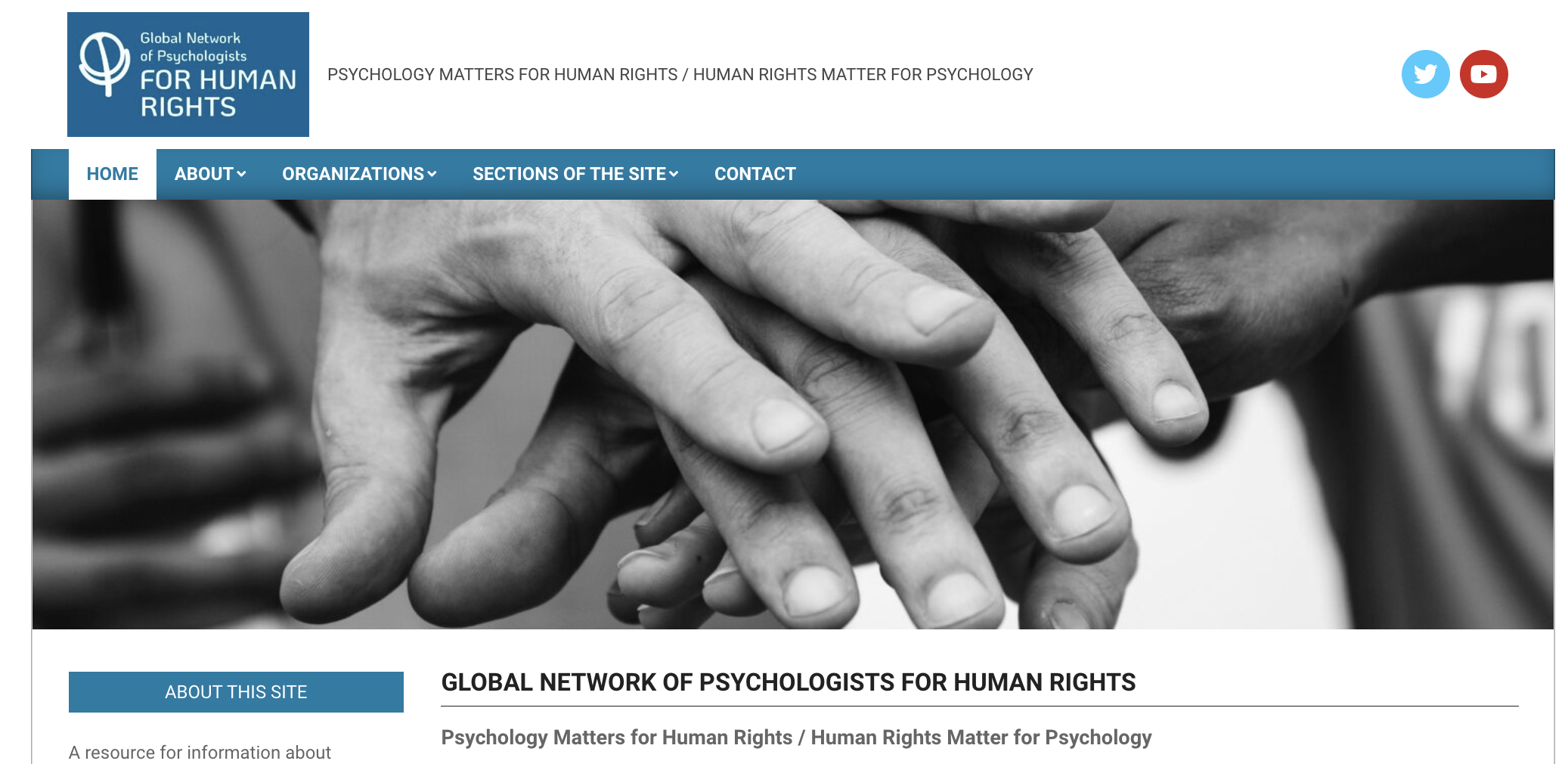
Subscribe to the Global Network of Psychologists for Human Rights
receive the monthly Bulletin, participate in webinars,
contribute to the global voice!
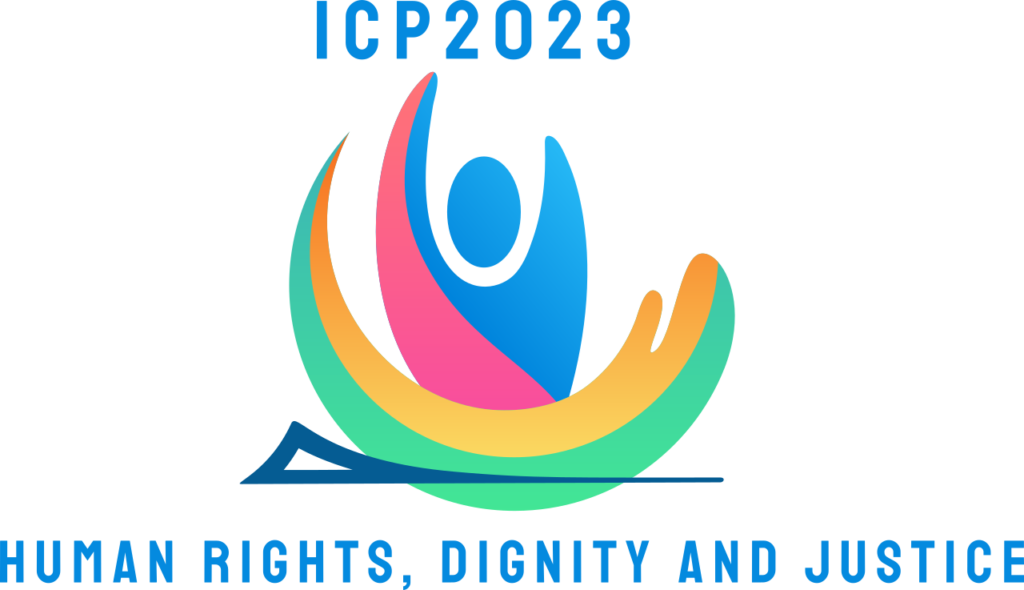
ICP 2023 – December 1-2, 2023
Human Rights, Dignity and Justice: Empowering the Disempowered
https://icpweb.org/icp2023-december-1-2-2023/

I want to thank the editorial team for their hard work putting together the current issue. The Spring 2023 issue of The International Psychologist highlights the many exciting activities and hard work of ICP and its members over the last several months. We want to continue to hear from our members, so please reach out to share your personal announcements and accomplishments for inclusion in the next newsletter.
One of the themes of the ICP 2022 conference was health equity. The World Health Organization reports that the inequitable distribution of health resources can largely be attributed to social and environmental conditions. Promoting and protecting human rights is closely associated with human health, and psychologists play a role in promoting human rights and global health equity. The Summer 2023 issue of The International Psychologist will continue to highlight the activities of ICP and its members and will include a special focus on global health equity. We invite you to submit your work for the Summer 2023 issue, including research in the form of article briefs (3000 words), testimonials, opinions, informational pieces (1500 words), artwork, and poetry. Please submit your work for consideration to Erinn Cameron at ecameron@email.fielding.edu
